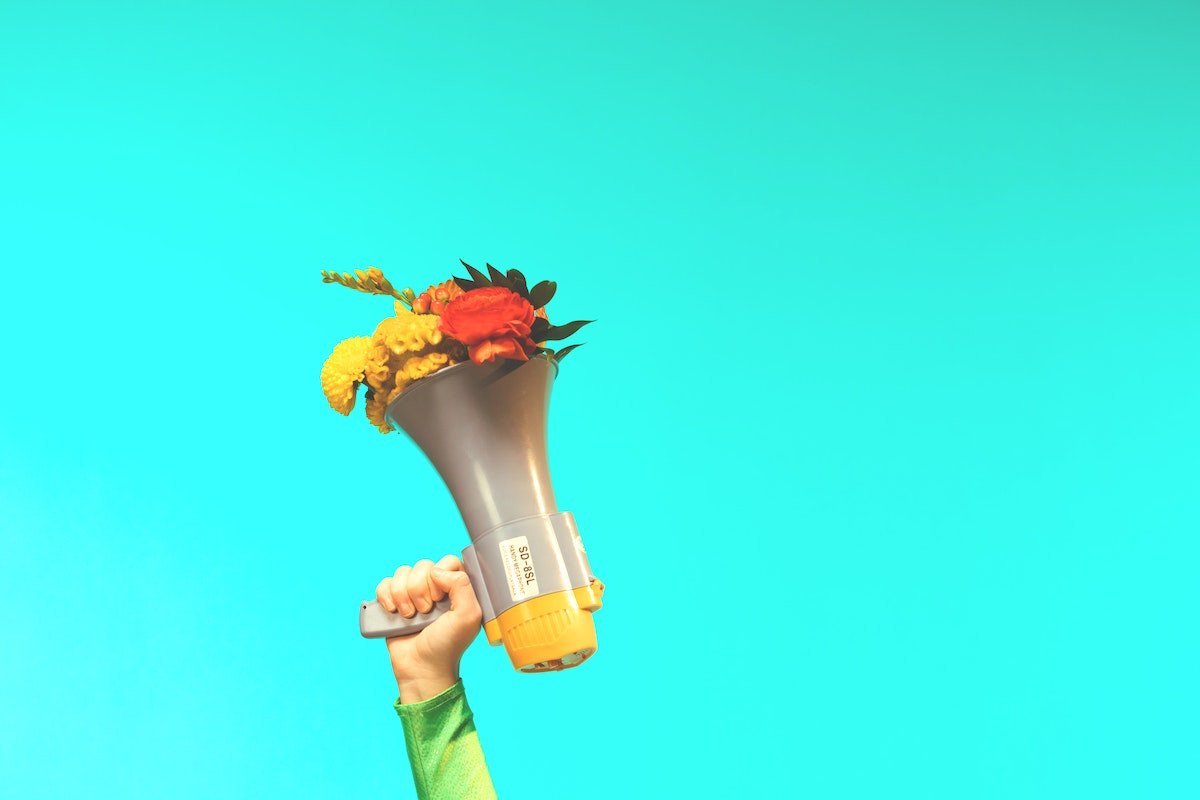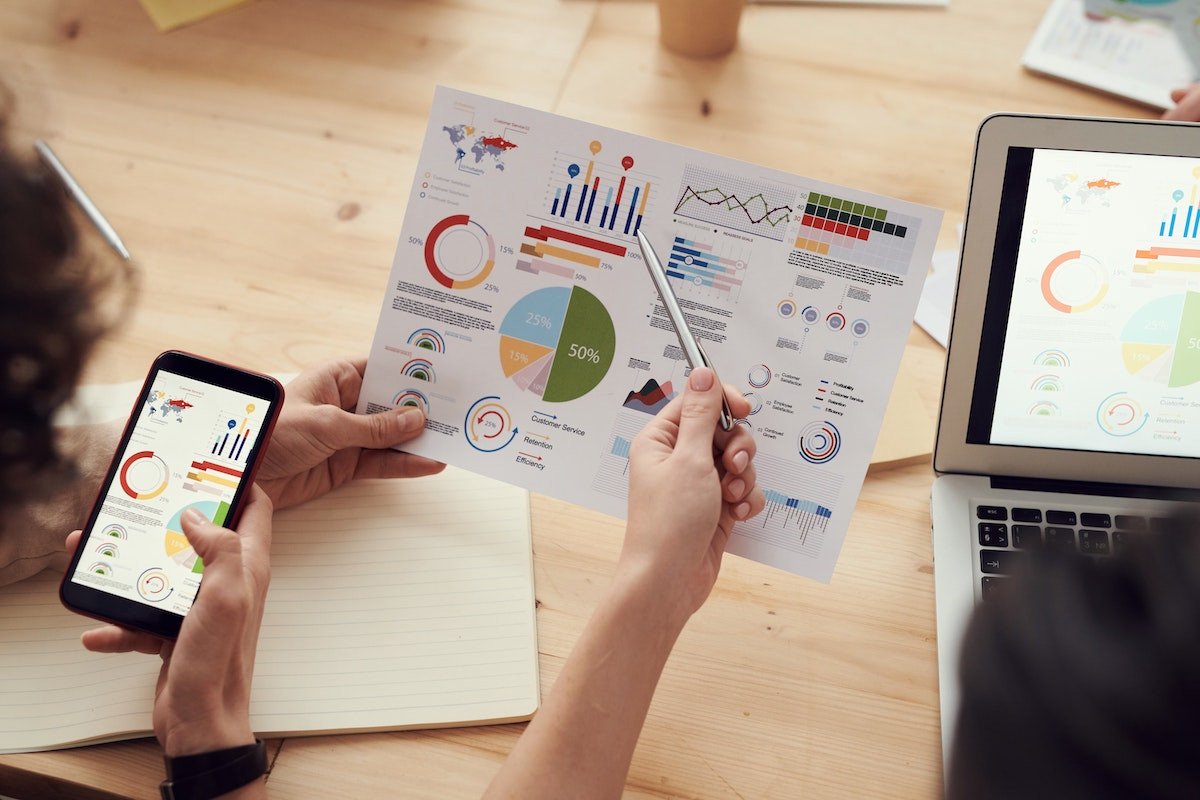“It's not our bodies that are broken, it's the systems and practices which are all geared to only one type of body that put us at a disadvantage.”—Sara Tasker
There’s no doubt that Covid-19 has radically re-shaped the way many industries work, and while the long-term effects of the pandemic on the workplace are unclear, there’s one potential silver lining.
Now, more than ever society is waking up to the fact that we need to be more flexible, and more accomodating of difference, whether that’s allowing employees the opportunity to
work from home, or the necessity for more generous sick leave. For many of us, 2020 has been the year we had to learn how to advocate better for our needs.
This skill isn’t new to people with disabilities and mental illnesses that don’t allow them to fit into many typical work environments. We asked a range of successful disabled and neurodiverse women to share what being “different” has taught them and how they’ve learned to
work with their needs in their working lives.
Their answers shed light on what it takes for all of us, no matter what our abilities and needs may be, to thrive and make a unique and meaningful contribution to the world—on our own terms.
Self-awareness is key
Understanding and acknowledging your needs is an essential first step in living your life to the fullest. Creative entrepreneur and six-figure business owner
Beth Kirby has Bipolar Disorder, and she talks openly about how she’s constantly trying to shut out what the world’s telling her she “should” do, and learn to be guided instead by what feels right for her.
“[Having mental health issues] means that if I go down I can’t work. I’ve tried to create a business around my weaknesses. I even plan for seasons, because I know my own mental health cycles.”
Work with your differences, not against them
Being faced with limitations forces you to get creative. “I realized that I was trying to live to other people's blueprints and methods when, in reality, the genetics of a human being means we are all infinitely variable,” explains
Victoria Teasdale, a life coach who has learned to live and work with multiple different life-changing conditions, including
Fibromyalgia,
Antiphosopholipid Syndrome,
Bipolar Disorder, and
Aspergers Syndrome. “Once I focused away from what was different or what I was lacking and started focusing on just what is, I found I was more accepting of myself, and my confidence grew as I wasn't allowing other people to define me anymore.”

Creative entrepreneur and author
Sara Tasker lives with
Dysautonomia, and believes that people with disabilities often thrive as entrepreneurs because they can make their own rules and adapt their working lives to their unique needs. “We get into these kinds of jobs because the 9-5 perhaps just doesn’t suit the way our bodies work, our minds work, our creativity works,” Tasker explained on her podcast,
Hashtag Authentic. “I wanted a career I could do from my bed because I need to sleep all day sometimes.”
“I think a lot of the weaknesses of mental illness are double-sided coins that can actually act as strengths,” Beth agrees with Sara. “My father used to say that I was like nuclear fission, I could either destroy cities or power them, and I think that that’s a really great way to look at mental illness. It can be, properly managed, actually an asset, in that a lot of the personality traits associated with the illness are also personality traits associated with entrepreneurs and creatives.”
Keep choosing compassion and empathy
Lizzie Velasquez was born with a rare congenital disease called Marfanoid-progeroid-lipodystrophy Syndrome that once had her labeled as “The World’s Ugliest Woman”. She argues that we should try to understand what’s going on with bullies, as well as the victims of bullying in her advocacy work and book,
Dare to Be Kind.
“Whenever we see a situation where there’s a bully and a victim, we automatically just tend to the victim,” she said in an interview. “[We have to realize that] there are two people who need our help in different ways. It’s really important to remember that hurt people hurt people."
“You can't know how somebody experiences the world just by looking at them,” says Sara. “Just because something is easy for you doesn't mean it is for the next person.” Victoria agrees, adding that her health struggles have taught her that “Behind every face you see on the street there is a hidden world that you can't see.”
Be solutions-focused
“My disability has taught me the power of collaboration,” says
Dr. Hannah Barham-Brown, a GP trainee and advocate for disability and equality. Living with
Ehlers Danlos Syndrome means that Hannah has to work in a wheelchair. “I’ve learned that however diametrically opposed you may seem, or however stressed you may be, taking a breath and finding common ground is the quickest and easiest way to achieve a solution. If I got angry every time I was left on a train, that would be a huge waste of energy, and I would spend a lot of my time feeling miserable. I choose not to live that way, so I try to work to highlight the issues and find solutions.”
Look for the ways adversity unlocks your greatest assets
“Being disabled means you have to learn vital skills really quickly, and these are often really transferable to the workplace,” says Hannah. “I've become a skilled negotiator when working out solutions to access challenges with different venues. I’m very used to having to build good working relationships and assimilating into teams quickly because I have to do this with the professionals who provide my healthcare, or those who work with me to navigate our very inaccessible transport system.”
“My disability has taught me to advocate for myself, my body, and my needs in a way that I don't think I'd ever have felt bold enough to do were it not so essential,” Sara points out. “Whether that's being able to tell a doctor exactly what tests we need to do next, or simply ask for a chair when I'm speaking on stage, it's been one of the biggest and most transformational lessons in my life.”
Dare to be a visionary
Last year,
Sinéad Burke became the first little person to grace the cover of Vogue. “Since I was a teenager, I’ve kept a list of ambitions and objectives that only in my wildest dreams could I hope to achieve."
"At the very top of the list was being on the cover of Vogue magazine. I was even specific about the issue—September. My ambition has never been to scale,” she wrote. “The realization of this dream has required a huge amount of hard work, support from family and friends, and an enormous amount of belief and confidence in myself and those I admire that the world and society can and will change.”
“If your life and abilities don't fit into the conventional framework, it doesn't mean there's no room for your work or your voice in the world,” Sara wants people to know. “It's not our bodies that are broken, it's the systems and practices which are all geared to only one type of body that put us at a disadvantage. The conventional 9-5 work world made me feel like a failure who couldn't contribute. Then I built my own business, with my own rules, and last year I made £250k from my bed.”
As these women prove, when we remove the stigma of being “different” and start seeing people as complex individuals with different needs, we can work to create a world in which everyone has the tools they need to thrive in their own unique way. Perhaps then, we’ll stop being surprised when we hear stories of disabled people achieving amazing things, and we’ll start to see more disabled people in positions of authority and leadership. And, as we’ve been learning this year, when workplaces become more flexible and diverse, all of us benefit.
















